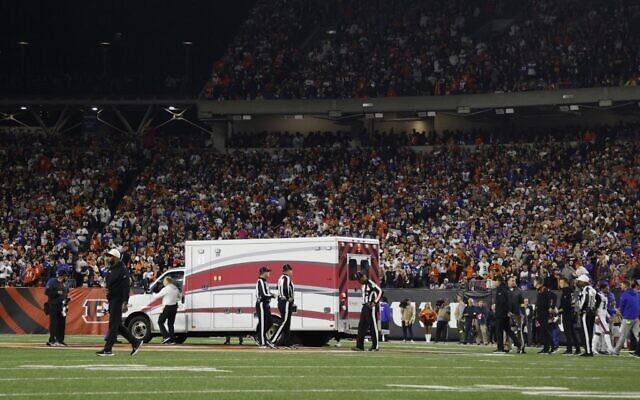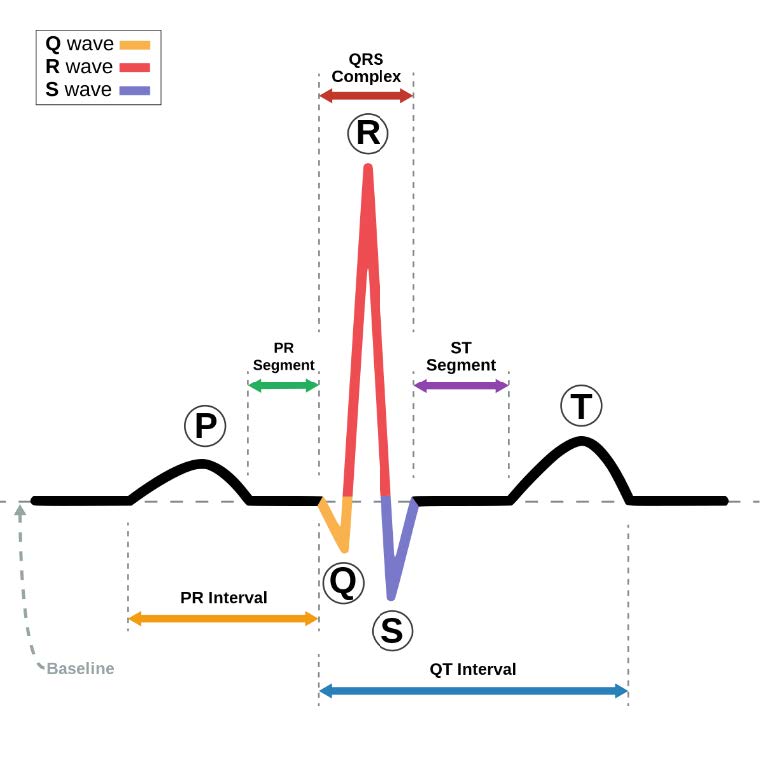Joseph R. Anticaglia MD
Medical Advisory Board

Buffalo Bills safety Damar Hamlin suffered a cardiac arrest on January2, 2023 after tackling Cincinnati Bengals receiver Tee Higgins in the first quarter of the game broadcasted on “Monday Night Football.” People in the stands at Paycor Stadium and those at home were stunned as they watched Hamlin stand up from the tackle and a few seconds later crumbled to the ground, stretched out on his back, lying motionless.
The Buffalo bills medical team blitzed onto the field and into action. Denny Kellington, Assistant Athletic Trainer, was first on the field to be at Hamlin’s side. When he could not get a pulse, he immediately initiated CPR — cardiopulmonary resuscitation. What follows is part of an audio exchange among the Bills medical team reported by the New York Times, on January 5, 2023.
Audio Exchange
The audio demonstrates the doctors, trainers and emergency staff working together with calmness, swiftness and competence in managing Hamlin’s cardiac arrest. The NY Times captured the commands and conversations from a website that tracks emergency radio traffic.
“I don’t like how he went down,” one person said in a radio clip.
Seconds later, another person emphasized the urgency of the situation, “We’re going to need everybody,” he said. “All-call, all-call,” the equivalent of “all hands on deck.”
Next, we hear the first person saying: “Call, bring everybody. We need an airway doctor, everybody. Bring the cot with the medics.”
At another point in the audio, someone exhorts: “I need an end-tidal CO2” monitor “now! Per the doc.” It’s an instrument that measures how well a patient is breathing. The higher the level of C02 in the lungs, the less oxygen is circulating through the body, and the more immediate is the danger to the patient.
When told the monitor is on its way, he said, “Yeah, you need to step it up.”
“Commotio Cordis” — Cardiac Arrest
Commotio Cordis is a rare cardiac condition secondary to blunt trauma to the chest causing the heart to stop beating. A baseball, a hockey puck, or in Mr. Hamlin’s case, a blunt blow to the chest from an opposing football player’s shoulder landed him on his back with no heartbeat.
Trauma to the chest wall causes an irregular heart rhythm, called ventricular fibrillation, and in a matter of seconds, cardiac arrest. The blow to the chest wall must happen directly over the heart, and at the right time in the electrical cardiac cycle for the heart to stop beating.
Cardiac cycle
Below is a diagram of one cycle of the heart’s electrical system.

The heart cycle begins with the “P” wave which is the electrical activity caused by the squeezing of part of the heart called the atrium. It’s located on the upper right side of the heart. Next is the QRS electrical activity caused by the contraction of the ventricles which pump blood from the heart to the rest of the body. The last phase is the “T” wave where the ventricles depolarize, kind of recharges, to get ready for the next cycle.
For Damar Hamlin’s cardiac arrest to have occurred, the blow to the chest had to be a forceful one over the heart, and at a precise time in the cardiac cycle., namely, on the upstroke of the “T” wave causing the irregular heart rhythm, ventricular fibrillation, and cardiac arrest.
The upstroke of the “T” happens in milliseconds. If the blow to the chest happens at any other time, your heart is fine. Note the many instances when football players have incurred chest contusions, or broken ribs with no cardiac injuries. Commotio Cordis happens because of the unlikely combination of force and timing. It is an extremely rare condition with only about fifteen cases per year that have been reported in the U. S.
Kudos (“Readiness is All”)
Kudos to the Buffalo Bills on field medical emergency team and to the U. C. Medical Center’s in hospital staff and trauma team for saving the life of Damar Hamlin. It took an Army of prepared medical professionals, communicating and collaborating, to revive Mr. Hamlin and prevent him from becoming brain dead.
The road to Mr. Hamlin’s recovery is filled with potholes and detours. But this cornerback is making a comeback. Seventy two hours after the cardiac arrest, there was euphoria at his bedside when he opened his eyes and started to communicate with his head and then signaled for a writing pad. The doctors, nurses, respiratory therapists and staff rejoiced when he wrote, “Did we win?”
One of the doctors answered, “Yes. You won the game of Life.”
References
- NY Times, Audio: Damar Hamlin Emergency Response Captured on Recordings January 5, 2023
- University of Cincinnati Medical Center; Damar Hamlin, January 5, 2023
- Joseph R. Anticaglia, MD; How Does the Healthy Heart Work? Doctors Column, December 15, 2019
Glossary
A heart attack is a circulatory problem that happens when there is blockage of blood flow to the heart muscle. Cardiac arrest is an electrical problem when the heart suddenly stops beating.
This article is intended solely as a learning experience. Please consult your physician for diagnostic and treatment options.

